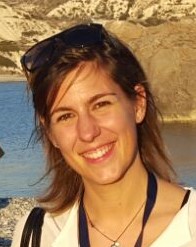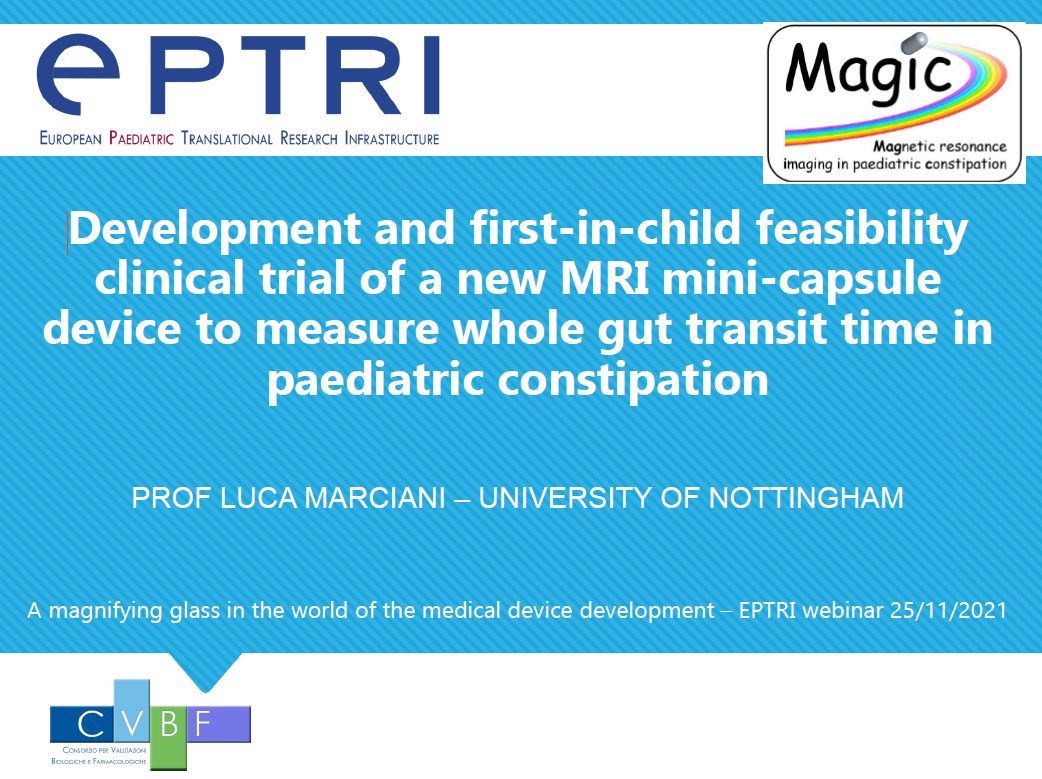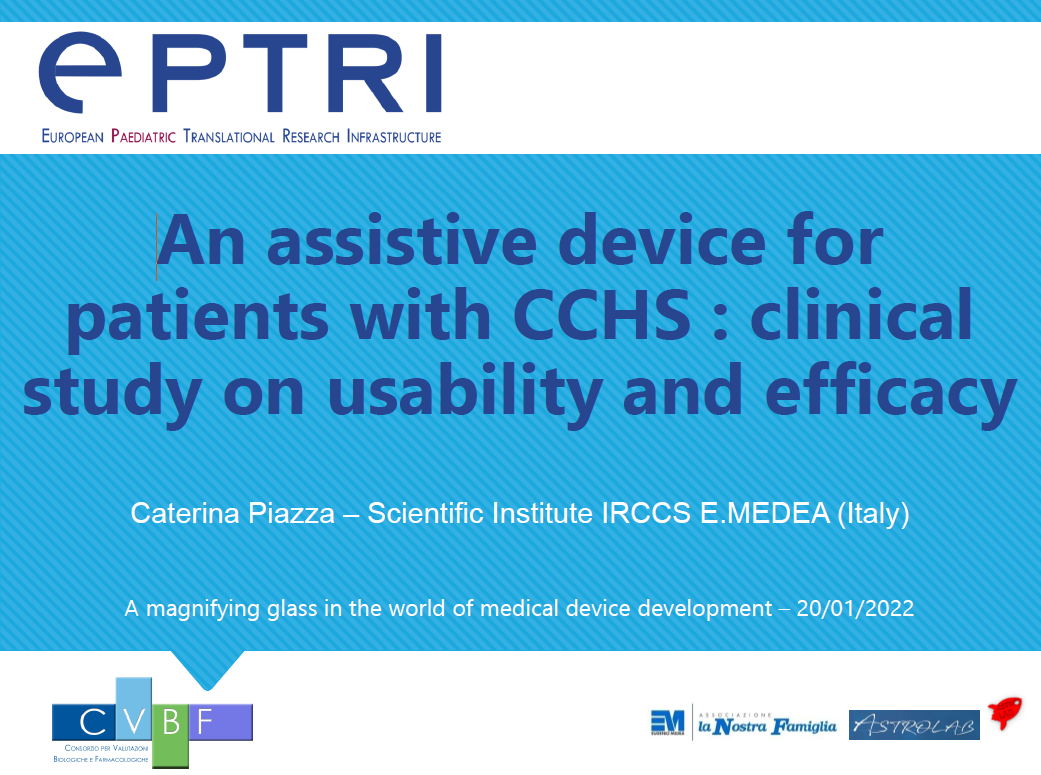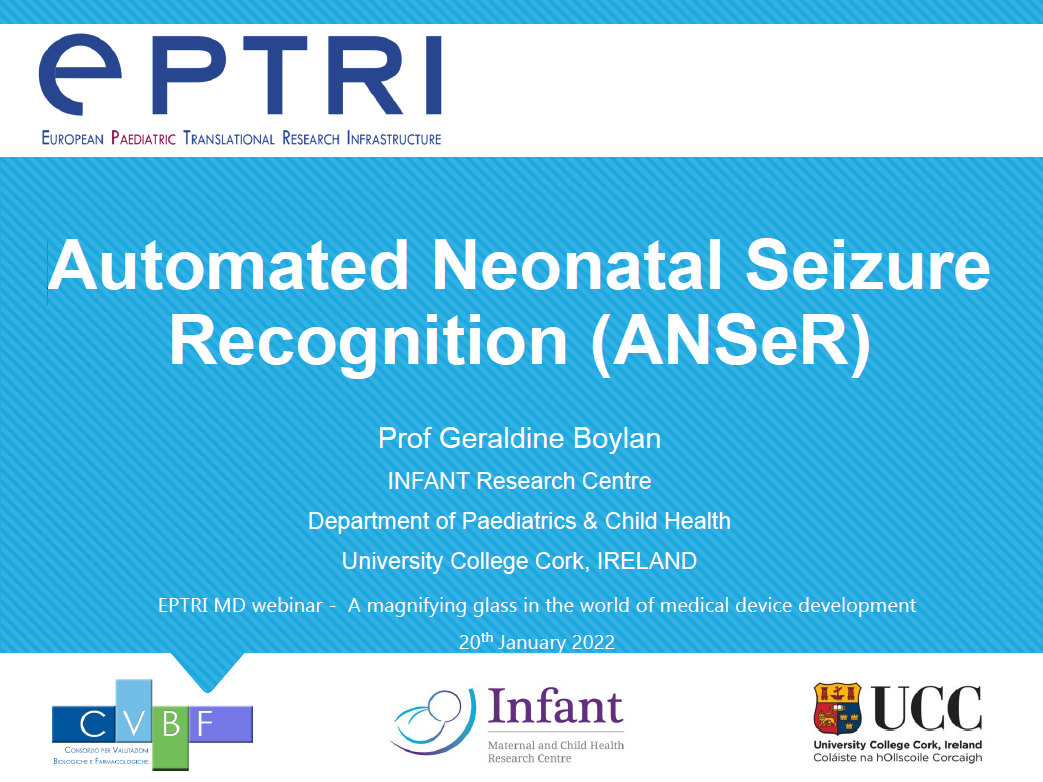A magnifying glass in the world of the medical device development
In this webinar, #3 case studies have been presented to analize different interesting fields of MDs and focused our attention towards:
- A new MRI mini-capsule marker device to measure whole gut transit (WGTT) that has been developed in paediatric constipation to overcome image quality and ionizing radiation limitations of current X-ray radiopaque marker (ROM) methods. This work adds whole gut transit time to the parameters of interest that can be measured in the gut lumen using MRI. Increased knowledge of the gastrointestinal environment in children and young people will help improve management and also the design of paediatric drug formulations.
- A medical device able to stimulate the revival to support patients with the Congenital Central Hypoventilation Syndrome (CCHS). The device is a prototype under clinical study which involved children with CCHS.
- A system for neonatal seizure detection (ANSeR – Algorithm for Neonatal Seizure Recognition) which competed a randomised trial across 8 NICUs in Europe.

Prof. Luca Marciani
He is Professor of Gastrointestinal Imaging at the University of Nottingham, UK. He is a physicist by background and is specialized in imaging motor function and the luminal environment of the human gastrointestinal tract using MRI. His current research interests include development of medical devices, in-body imaging of foods, beverages and formulations. He is first author on 7 patents and has published 120 peer-reviewed papers and 14 book chapters in this subject area.

Eng. Caterina Piazza
She is Post-doc researcher at the Applied Technologies Research Area of IRCCS E. Medea. She obtained a PhD Degree cum laude in Bioengineering with a thesis on the development of advanced EEG signal analysis for the investigation of early cognitive development. She was visiting PhD student at the University of California San Diego, Swartz Center for Computational Neuroscience. Her main expertise and interests are about biomedical signal processing and data integration with focus on paediatric data.

Prof. Geraldine Boylan
She is Professor of Neonatal Physiology, Department of Paediatrics & Child Health, University College Cork, Ireland and Director of the Irish Centre Maternal & Child Health Research – INFANT www.infantcentre.ie. She leads the Neonatal Brain Research Group at the INFANT centre – a multidisciplinary research team focused on neurological monitoring of infants in the neonatal intensive care unit, particularly for the early diagnosis of brain injury. Researchers in the team use AI to develop automated algorithms for monitoring the health of newborn infants. They have most recently developed a seizure detection algorithm for newborn infants which has now being licenced to a number of multinational patient monitoring companies. A Wellcome Trust funded clinical trial (ANSeR Study) evaluating the clinical efficacy of this algorithm was completed in 8 centres across Europe. This was the first randomised clinical investigation of AI assisted seizure detection for neonates in the world.



